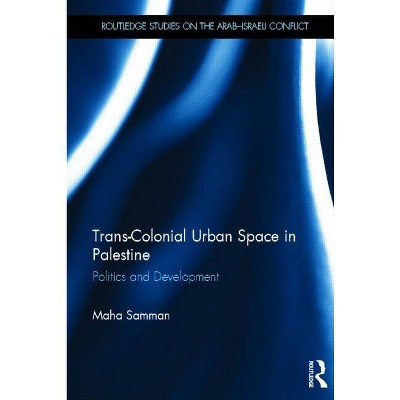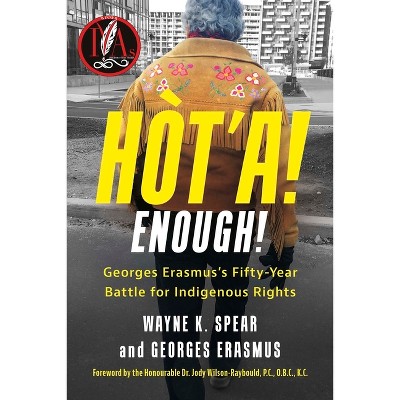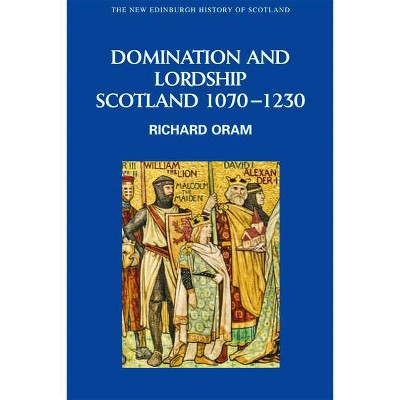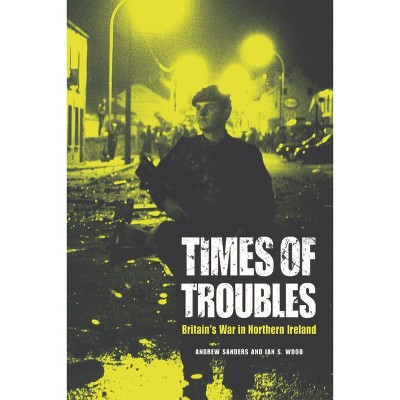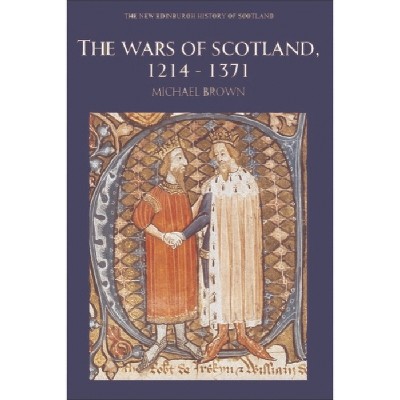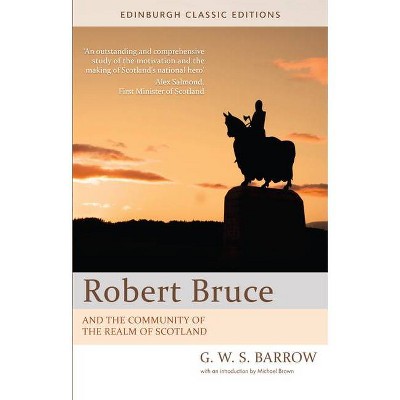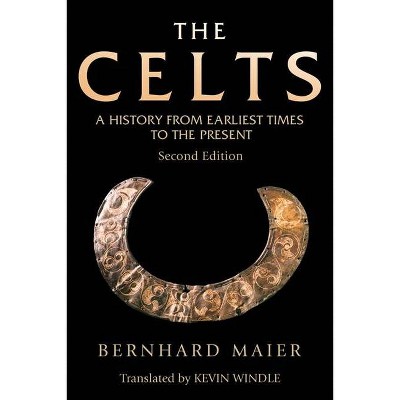Sponsored

Slaves and Highlanders - by David Alston (Paperback)
In Stock
Sponsored
About this item
Highlights
- Scots were involved in every stage of the slave trade: from captaining slaving ships to auctioning captured Africans in the colonies and hunting down those who escaped from bondage.
- About the Author: David Alston is a Historian and Independent Researcher.
- 400 Pages
- History, Europe
Description
About the Book
Explores the prominent role of Highland Scots in the slavery industry of the cotton, sugar and coffee plantations of the 18th and 19th centuries. Longlisted for the 2021 Highland Book Prize.Book Synopsis
Scots were involved in every stage of the slave trade: from captaining slaving ships to auctioning captured Africans in the colonies and hunting down those who escaped from bondage. This book focuses on the Scottish Highlanders who engaged in or benefitted from these crimes against humanity in the Caribbean Islands and Guyana, some reluctantly but many with enthusiasm and without remorse. Their voices are clearly heard in the archives, while in the same sources their victims' stories are silenced - reduced to numbers and listed as property.
David Alston gives voice not only to these Scots but to enslaved Africans and their descendants - to those who reclaimed their freedom, to free women of colour, to the Black Caribs of St Vincent, to house servants, and to children of mixed race who found themselves in the increasingly racist society of Britain in the mid-1800s.
As Scots recover and grapple with their past, this vital history lays bare the enormous wealth generated in the Highlands by slavery and emancipation compensation schemes. This legacy, entwined with so many of our contemporary institutions, must be reckoned with.
From the Back Cover
Scots were involved in every stage of the slave trade: from captaining slaving ships to auctioning captured Africans in the colonies and hunting down those who escaped from bondage. This book focuses on the Scottish Highlanders who engaged in or benefitted from these crimes against humanity in the Caribbean Islands and Guyana, some reluctantly but many with enthusiasm and without remorse. Their voices are clearly heard in the archives, while in the same sources their victims' stories are silenced - reduced to numbers and listed as property. David Alston gives voice not only to these Scots but to enslaved Africans and their descendants - to those who reclaimed their freedom, to free women of colour, to the Black Caribs of St Vincent, to house servants, and to children of mixed race who found themselves in the increasingly racist society of Britain in the mid-1800s. As Scots recover and grapple with their past, this vital history lays bare the enormous wealth generated in the Highlands by slavery and emancipation compensation schemes. This legacy, entwined with so many of our contemporary institutions, must be reckoned with. David Alston was one of the first Scottish historians to address the issue of Scotland's involvement with slavery. As a freelance historian and author, he has dedicated the past 20 years to researching the role of northern Scots in the slave-worked plantations of the Caribbean, especially Guyana.Review Quotes
Slaves and Highlanders will become a staple of undergraduate reading lists on Scotland and Atlantic slavery and will be widely read by the general public.--Stephen Mullen, University of Glasgow "Eighteenth-Century Scotland"
Slaves and Highlanders is an essential read for all Highlanders (and Scots).--Joan Michael, Chair, Ullapool Book Festival
Slaves and Highlanders successfully argues that Scotland's slaving past is still affecting the present. Whether or not one's ancestors actively participated in the slave trade or plantation economies for profit, the Highlands have suffered and benefited. Historians have an obligation to unsilence the past. But as Alston clarifies, all of us--historians and citizens--must acknowledge the inherited legacy and reckon with the ugly truths of complicity as a preliminary step towards reparative justice.--Peggy Brunache "Scottish Historical Review"
A landmark book on the links between slavery and the north of Scotland.--Alison Campsie "The Scotsman"
A major contribution to the field of Scottish studies, and in the era of the Black Lives Movement, so very relevant. [...] I can only say Read. The. Book.--Frances Singh, Hostos Community College "The Eighteenth-Century Intelligencer"
Alston has become an expert on Scottish involvement in the slave trade, slave ownership and the slave-worked plantations in South America, the Caribbean and beyond. This book is a firm rejection of the revisionist history that pretends Scotland had little or nothing to do with slavery... The subject matter is admirably clearly set out. The research is comprehensive and compelling. The multiple histories are fascinating and at times harrowing. But the writing is superb. David Alston has produced a very timely, extraordinarily easy book to read that I will be referring to regularly... In case you need to ask - I'd say this is very highly recommended indeed.--Michael Jecks "Writerly Witterings"
David Alston's Slaves and Highlanders is necessary reading for our moment, with the racial reckoning in global headlines resting on an honest reckoning with history. Alston illuminates the Scottish role in slavery, the slave trade and empire in the Caribbean with a moral commitment to the 'half glimpsed figures' at its margins. This is microhistory at its best, for it conscientiously excavates individual lives in the Highlands to reveal how those lives were intimately connected to the fates of forgotten others in the colonized world. Alston's ethics in telling the full truth is matched by a prose style that is evocative and lucid, with an excellent eye for humanizing detail.-- "Gaiutra Bahadur, Assistant Professor, Rutgers University-Newark"
Essential reading [...] comprehensively demolishes cosy assumptions [...] Alston demonstrates his mastery of his subject by matching and splicing his encyclopaedic local knowledge of personalities and locations with the wider stories of the transatlantic slave trade, plantation slavery and its victims. [...] A thorough and comprehensive sweep that nails down, unequivocally, the involvement of the Northern Scots in the despicable business of slave trading and slave plantation ownership. Alston's personal close connection with his landscapes comes through in his strong empathy with his characters and engenders sensitivity for the moral issues raised by the legacy, both at home and abroad--Eric J Graham "Scottish Local History"
I think it is a superb book.--Marika Sherwood, Institute of Commonwealth Studies "Black and Asian Studies Association"
In profound parts, as painful as it is plaintive, Dr Alston's dedicated work offers powerful glimpses of the victims and perpetrators of widespread abuses, the bloody terror and casual horror of everyday estate life and the brutally suppressed revolts.--Indranie Deolall "Stabroek News"
This book is published at an important juncture in British history as Scots continue to flirt with potential independence from the United Kingdom, while a reckoning with the legacies of England and Scotland's conjoined imperial past promises to be a regular feature in political debates over the next decade at least. As authorities increasingly seek to acknowledge the impact of slavery on Scotland's institutions and wider regions, Slaves and Highlanders will prove essential reading where those discussions look towards the Scottish Highlands.--Stephen Mullen, University of Glasgow "History Today"
This is a mighty book [...] It interweaves global history with local history, and while it interrogates in great detail the available evidence, it does not shrink from asking broader questions [...] A sobering, challenging but thoroughly compelling read.--James Robertson "Northwords Now"
This is a powerful and thought-provoking book that opens a vital conversation on our understanding of the Highlands, both in the past and with implications for the present; and as a result changes our perspective of Scotland as a whole. The depth and meticulousness of the research was incredibly impressive; Alston lets the facts speak for themselves - and they take the breath away.--Jenny Niven "Highland Book Prize"
This is an essential book for all those interested in the Black history of Scotland.--Peter B Freshwater "University of Edinburgh Journal"
This is an excellent example of a scholarly book: detailed, well-documented, judicious, clearly structured and carefully argued. Meticulous throughout. At the same time, it is a deeply disturbing, sometimes shocking work, and not easy to read.--Andrew Hook, Emeritus Bradley Professor of English Literature, University of Glasgow "Scottish Review"
This is an important book [...] Alston's book is timely and forms a revisionary contribution not only to Scottish history, but to our wider understanding of the centrality of slavery in the shaping of the West on the back of enslaved Africans.--James Walvin "Family & Community History"
About the Author
David Alston is a Historian and Independent Researcher. He is the author of Ross & Cromarty: A Historical Guide (1997) and My Little Town of Cromarty: The History of a Northern Scottish Town (2006). He was a Highland Councillor and from 1991-2003 was curator/manager of Cromarty Courthouse Museum. He has published articles on the Highlands and Slavery including 'Very Rapid and Splendid Fortunes: Highland Scots in Berbice (Guyana) in the early nineteenth century', in Transactions of the Gaelic Society of Inverness, (2007) and wrote a chapter in the T.D. Devine edited collection 'Recovering Scotland's Slavery Past' (EUP, 2015).
Juanita Cox-Westmaas completed her PhD in Caribbean Studies with a focus on Edgar Mittelholzer (1909-1965) and the Shaping of his Novels, at the University of Birmingham in 2013. She is editor of Creole Chips and Other Writings (2018). Other publications include Buried in the Landscape: Edgar Mittelholzer's Creative Gene(sis)/Geni(us), and Revolting Subtexts in Aje, L., Lacroix, T. and Misrahi-Barak, J. (eds) Re-imagining the Guyanas (2019) and introductions to republished Peepal Tree editions of Mittelholzer's Corentyne Thunder (2009) and The Life and Death of Sylvia (2010). She was Research Fellow on the project National, Identity and Belonging: An Oral History of the Windrush Generation and their Relationship to the British State (1948-2018) and is currently a Visiting Fellow.
Rod Westmaas has carried out independent research into the history of Guyana in archives situated in Guyana and at The National Archives (Kew) and has spoken about his findings at academic and public events, and his experiences of migration and sense of national identity.
Shipping details
Return details
Frequently bought together
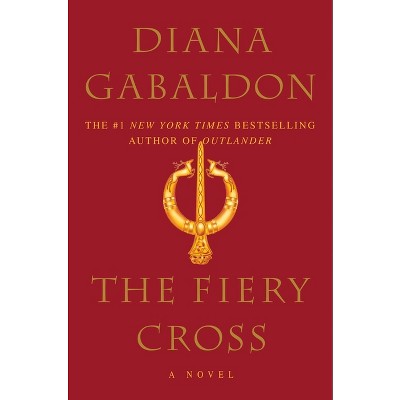
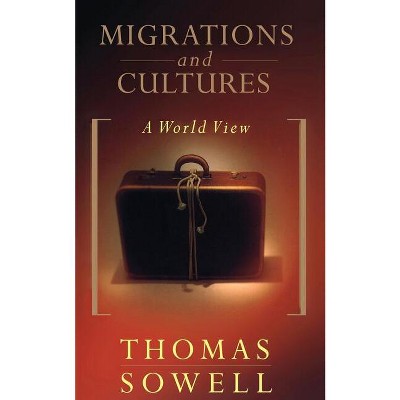

Trending Non-Fiction






